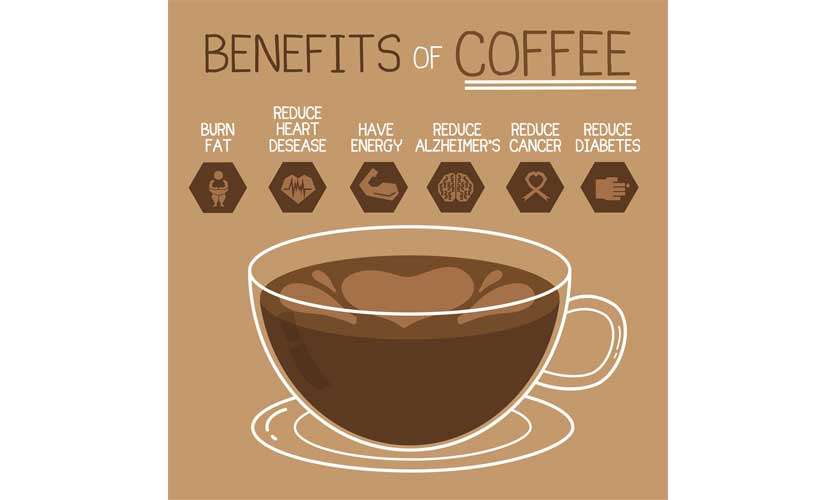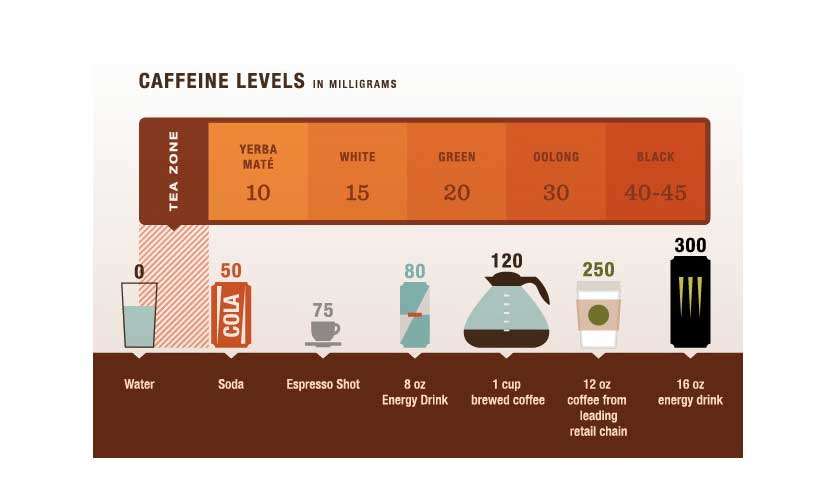
Nov 27 2018.
views 543
In Sri Lanka tea is the most consumed beverage next to water, but with the globalization and busy lifestyles, the coffee consumption has skyrocketed. And coffee shops opening left and right is only aiding it. As time has gone by, most people have increased their coffee intake and some even consume around 8 cups a day. Can this behaviour bring about some adverse effects in the long run?
In the recent history, coffee is one of the most researched commodities and in 2016, the World Health Organization (WHO) took coffee out of the possible carcinogen list and said that it may have positive impacts on the drinkers.

Positive Impacts of Coffee Consumption
Recent studies have found out that regular coffee consumption can increase one's lifespan by 8% to 15% and the degree was even higher with higher coffee consumption levels. People who have increased their intake of coffee by 1 cup for four years have reported having a lower chance of developing Type II diabetes and the people who have lowered their level of coffee consumption by 1 cup have reported having increased their chances of getting type II diabetes.
There are many studies being carried out on the impacts of coffee consumption on Parkinson’s disease and numerous studies have suggested that regular intake of coffee can reduce the risk of getting Parkinson’s disease. Also, another research has noted that the intake of two 8 ounce cups of black coffee can aid in regulating the involuntary movements of people who have already developed the disease. A group of researchers based in Florida have found out that elderly with mild levels of cognitive impairments (which can lead to severe dementia, including Alzheimer’s disease) who have consumed a daily dose of three coffee cups have been very less prone to have developed severe dementia compared to the ones who didn’t consume any caffeine at all.

One of the most potent benefits of coffee is the protection of the liver by the reduction in risk levels of death from cirrhosis, lowering the harmful liver enzyme levels and limiting liver scarring in people who have hepatitis C. In addition, regular consumption of coffee is said to enhance heart health and a study has reported that people who consume three to five cups of coffee per day have had a lower possibility of developing any heart disease than who had no coffee or more than five cups a day.
Researches have pointed out that coffee can reduce the risk of developing uterine and liver cancer, gout and melanoma.
Negative Impacts of Coffee Consumption
WHO has pointed out that the consumption of coffee of other beverages at 65˚C or higher might elevate the risks of getting esophageal cancer. Some researches have unearthed a link between cardiovascular disease with higher levels of coffee consumption (more than four cups per day). Also, this level of coffee consumption can induce modest and temporary elevations in blood pressure and fast or abnormal heart rhythms. There is a potential risk of osteoporosis in older adults because caffeine hinders the absorption of calcium in the gastrointestinal tract. But a sufficient intake of calcium and vitamin D intake paired with a maximum of 2 to 3 coffees per day can help keep osteoporosis at bay.
There are two compounds called cafestol and kahweol, naturally found in coffee that increase serum total cholesterol levels and low density lipoprotein cholesterol, which we know as LDL but they are mostly removed by paper filters. So be on the lookout if your coffee is filtered or not!
It is advised that pregnant women to keep the caffeine consumption to a minimum of 300mg per day because caffeine can cross through the placenta and very high levels of caffeine in the blood has been connected with spontaneous abortion or impaired fetal growth. Also, children are considered as a highly vulnerable group for coffee as well because it can cause anxiety and nervousness among other changes in behaviour.
So, What’s the Verdict?
WHO as mentioned earlier have taken it off possible carcinogen list and 2015 Dietary Guidelines Advisory Committee in the US has advised that a moderate coffee consumption (three to five coffee cups per day) can be a healthy level to maintain and the World Cancer Research Fund International has concluded that coffee consumption is connected with lower risks of certain types of cancer.
Even though there are some positive attributes to regular coffee consumption, it has not been yet exactly found out which components cause such results and everything is still in the research phase. The negative impacts have been documented for decades and even though WHO has made such a radical change, there is still a risk of consuming high amounts of coffee for a prolonged period.
What’s the Healthy Amount of Coffee to Drink?
Around 300/400 mg of caffeine a day has been stated as a safe limit for most healthy adults. That amounts up to four cups of brewed coffee, 10 cans of cola or two energy drinks. But the tolerable level can be highly subjective as the level of sensitivity to coffee can change from person to person. Do keep in mind that constant ingestion of coffee leads the cell receptors to be unresponsive to the same amount of caffeine and will lead to the increment of coffee intake with time to give the same effect, which can have dire effects in the future. Try to incorporate exercise and healthy meals to your life, so the dependence on coffee can be reduced over time.
0 Comments